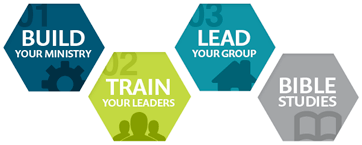Living as a Christian is not easy, nor does it have to be incredibly complicated. There's a middle ground that needs to be explored, and few authors have engaged in that exploration better than Philip Yancey in recent decades.
You and the members of your small group can join with Yancey in that exploration using these six studies, each of which is based on Yancey's original articles from Christianity Today.
Session One
Seeing God in Everyday Life
Genuine reality, like a live orchestra, cannot be reduced to mere bits of data.
Was that unexpected check from your uncle an answered prayer or a coincidence? What about how you met your spouse, or the encouragement you find in reading the Bible? Does it depend on how you "see" things? In our modern, scientific world with its tendency to explain everything in human terms, Philip Yancey calls for eyes and ears of faith that bring us into cooperation with God, who is unseen but active in our lives today. This study will help you develop an awareness of how God is working in your life.
Session Two
Fear & Friendship: Two Sides of Worship
How do we balance intimacy and awe?
Worship offers a great challenge: to live in fear of God while walking with him in friendship. How do we approach God with wonder while claiming the intimate friendship Christ offers (John 15:15)? Philip Yancey writes that authentic worship requires profound awe—one of the toughest tasks for 21st-century people. How does worship connect with our personal walk with God? How do we balance intimacy and awe?
Session Three
Avoiding the Sin Word
Our society avoids the word. But so do many ordinary Christians.
How do we deal with wrongdoing? We mourn at the way we've lost our Christian moorings and generally shake our heads at the moral disintegration of society. But have we forgotten that those ills are caused by people—by us? What has happened to the concept of sin? Why do we neglect to acknowledge our own personal faults? Philip Yancey challenges our thinking on the topic of sin.
Session Four
The Danger of Self-Righteousness
Self-righteousness poses a special danger to those of us who value correct doctrine and preach high moral standards.
Evangelicalism, although it originated as an alternative to mainline liberalism and fundamentalism, itself has both liberal and fundamentalist constituents. Nowhere is this dualism more evident than in the area of sin. Philip Yancey observed a gay-rights parade in Washington, D.C., in which gays tried to justify their lifestyle in Christian love, while some conservative Christians resorted to name calling and hate-filled taunting. Is either side right? What is the Christian approach to sin?
Session Five
Letting Go of Guilt
What is the balance?
Some people struggle with guilt; others have simply learned to live with it. Philip Yancey says there's a better way for believers to handle guilt. It can even work for us as we seek to grow in Christ's likeness. In this study we ask: If God forgets our sins, why can't we? Or should we?
Session Six
Trusting God When It Hurts
What we can all learn from Job
Whether it is lost possessions, family problems, poor health, a career failure, or some other personal struggle, we can all identify with Job's plight. And Philip Yancey gives some further thoughts on what to think of this book. Why do Christians experience hardship? Why does God permit, even encourage, Job-like tests of faith? Do our responses to these tests make a difference?
Total number of pages - 61





